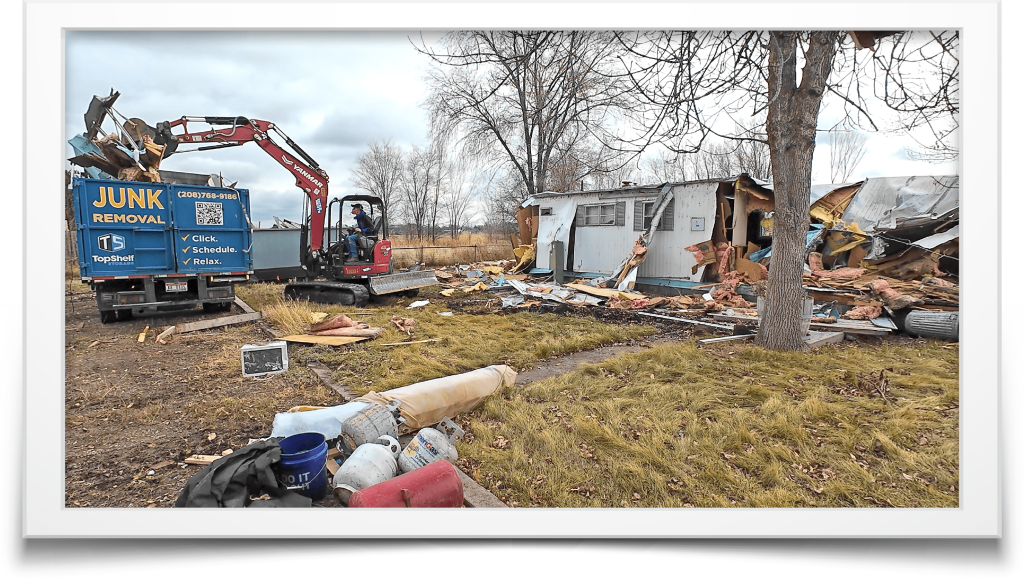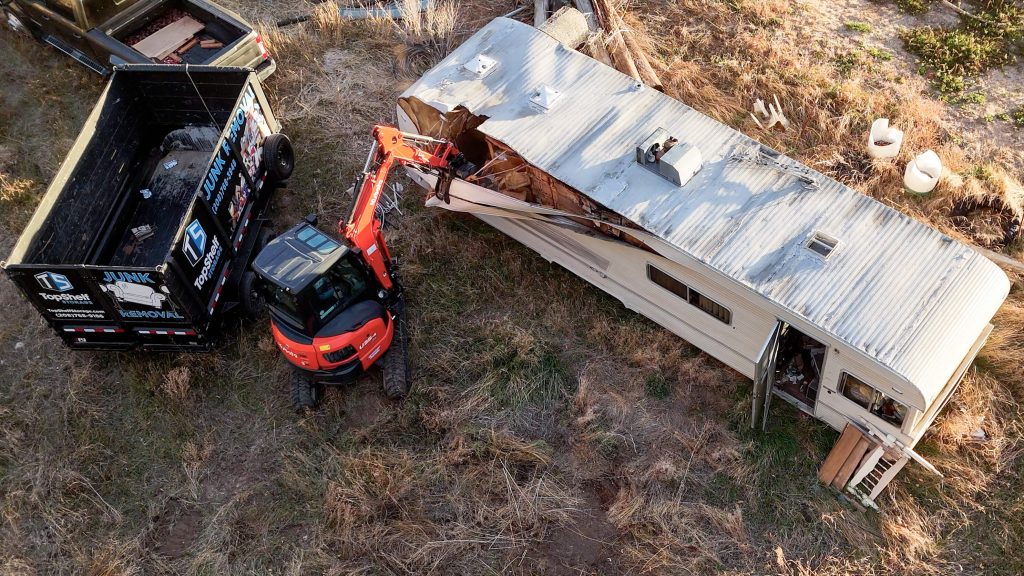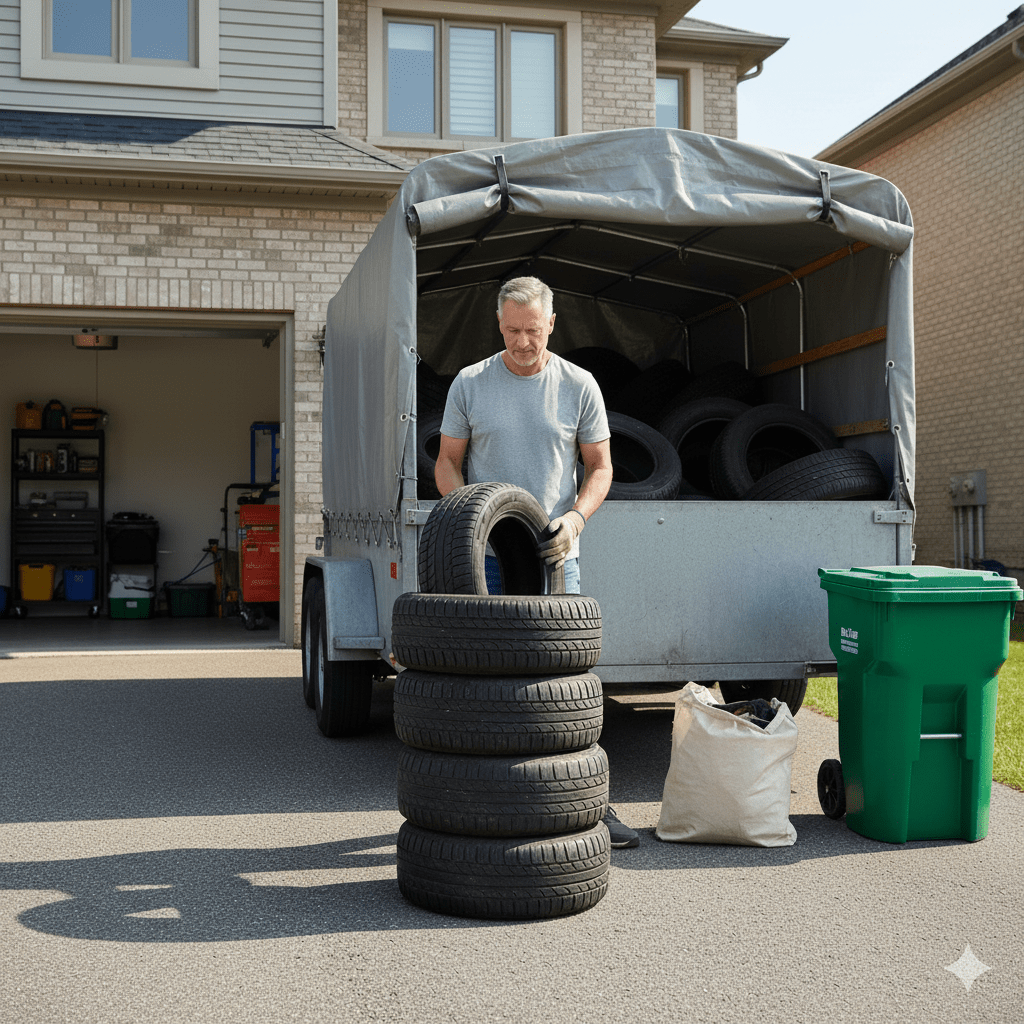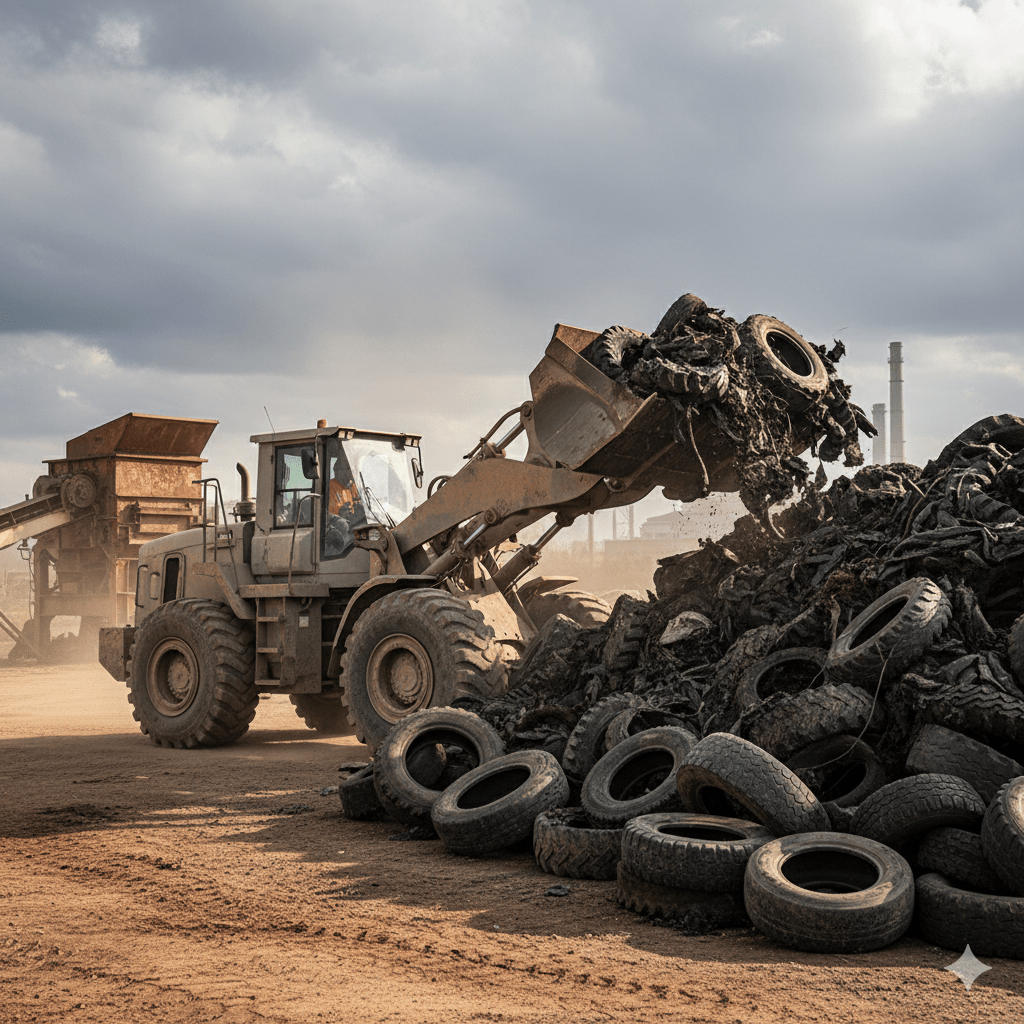There’s something uniquely frustrating about an old mobile home that’s overstayed its welcome. Maybe it was cute once. Maybe it served its purpose during a rough patch, a renovation, a season of life where you needed a low-cost roof and four sorta-insulated walls.
But now it’s a hazard. The roof leaks. The walls buckle when you lean on them. It smells like despair and dead rodents. And every time you walk by, you swear it gives you the finger.
Time to let it go. Time for mobile home demolition.
Let’s walk through this breakup—messy, noisy, but completely necessary.
Is Mobile Home Demolition or Relocation More Practical?
This is the first question everyone asks. And sure, on paper, trailer demolition seems extreme. Why not just sell it or move it?
Let’s be honest.
Relocation only makes sense if:
- The unit is structurally sound
- It meets local HUD codes
- The wheels and axles still exist (and work)
- There’s another place legally ready to receive it
Most older mobile homes—especially single-wides built before the 1980s—are beyond saving. If you need a forklift to “gently encourage” it onto a trailer, you’re not relocating. You’re staging a hostage rescue with poor odds.
Demolition wins when:
- The mobile home is no longer structurally sound
- It has water, mold, or pest damage
- It can’t be legally moved or resold
- You need the land cleared fast
Demolition is faster, safer, and in many cases, cheaper than trying to haul 12,000 pounds of soft, moldy regret across town.
Legal Steps Before You Demolish a Mobile Home
Before you start ripping into that old single-wide like it owes you money, there’s paperwork to handle.
1. Proof of Ownership
Sounds basic, but you’d be amazed how many people want to destroy mobile homes they technically don’t own. Make sure you have a title or deed proving it’s yours to demolish.
2. Permits
Most cities require demolition permits. Some treat mobile homes like vehicles. Others treat them like structures. Either way, check with your local building department before a single nail gets pulled.
3. Utility Disconnection
Electricity, gas, water, septic—everything needs to be professionally shut off. Skip this step, and you might find yourself featured in a local news story that begins with “authorities believe the explosion originated from…”
4. Hazardous Material Inspection
Older mobile homes may contain asbestos (especially in flooring, siding, and insulation). If you just start tearing stuff out, you’ll contaminate the entire site and possibly end up paying for an abatement crew.
Bottom line: check with your city. Pull the right permits. Don’t assume “it’s just a trailer” is going to be a valid legal defense if you screw something up.

How Long Does Mobile Home Removal Take?
Here’s the breakdown by type:
Single-wide mobile home demolition:
- Tear-down: 1–2 days
- Haul-away: another day
- Site cleanup and grading: up to 2 days
Total time? Around 3–5 days for a full removal with proper crew and equipment.
Double-wide:
Same process, just double the volume. Think 5–7 days depending on size, accessibility, and whether the crew runs on caffeine or vibes.
Add-ons like decks, porches, and skirting slow everything down. If your mobile home is boxed in by an entire ecosystem of DIY extras, expect longer timelines (and higher costs).
Want to speed things up? Search for “mobile home demolition near me” and hire pros who show up with the gear, the trailer, and the permits ready to go. Or keep waiting on your cousin to borrow that excavator “next weekend.”
Common Obstacles During Mobile Home Demolition
Demolition rarely goes to plan. Especially not with mobile homes, which are famous for hiding rot, rodents, and surprises under every panel.
1. Hidden Hazards
Asbestos. Mold. Animal nests. If it’s been abandoned for a while, assume the worst. Get it inspected first or wear more PPE than a hazmat tech at Burning Man.
2. Anchoring Systems
Many mobile homes are strapped to the ground with tension cables or buried anchors. Removing these takes time and equipment—not just brute strength and rage.
3. Debris Volume
A single-wide can generate 20–40 cubic yards of debris. That’s multiple dump trailer loads. Don’t underestimate how much garbage one trailer can produce.
4. Access Issues
Tight driveways, low-hanging wires, or neighboring structures can slow the process down—or require some creative rigging.
A good mobile home demolition company will know how to anticipate these issues. A bad one will ghost you halfway through after realizing your trailer was built on a concrete pad in 1979 and fused to the Earth through sheer spite.
What Happens to the Frame, Walls, and Insulation?
You don’t just flatten a mobile home and pretend it didn’t exist. Every part has to be accounted for.
The Frame
Steel I-beams and chassis components usually get salvaged. Some companies will haul them off for scrap. Others might leave them in a neat pile and pretend you asked for that.
Walls & Siding
Most mobile homes have aluminum or vinyl siding over wood or composite sheeting. All of that gets stripped and tossed—unless you want to spend your weekend removing nails one by one.
Insulation
If it’s fiberglass or cellulose and hasn’t been saturated or infested, it might be recyclable. If it’s moldy, rat-infested, or full of black widow eggs, it goes straight to the landfill.
Appliances & Fixtures
These can be removed and resold before the demolition starts. If you want to keep the furnace, the fridge, or the kitchen sink, pull them out before day one.
Ask your demolition company if they include cleanup, hauling, and disposal in the quote—or if that part comes with “some extra fees we forgot to mention.”
Last Word
Demolishing a mobile home isn’t glamorous, but it’s liberating. It clears the land. It closes a chapter. It makes room for something better.
Whether you’re tired of looking at that leaning metal box, need to reclaim your property value, or just want to stop explaining to city inspectors why the windows are boarded up, trailer demolition might be the smartest move you make all year.
Hire a crew. Do it right. And when the dust settles? You’ll wonder why you didn’t do it five years sooner.






